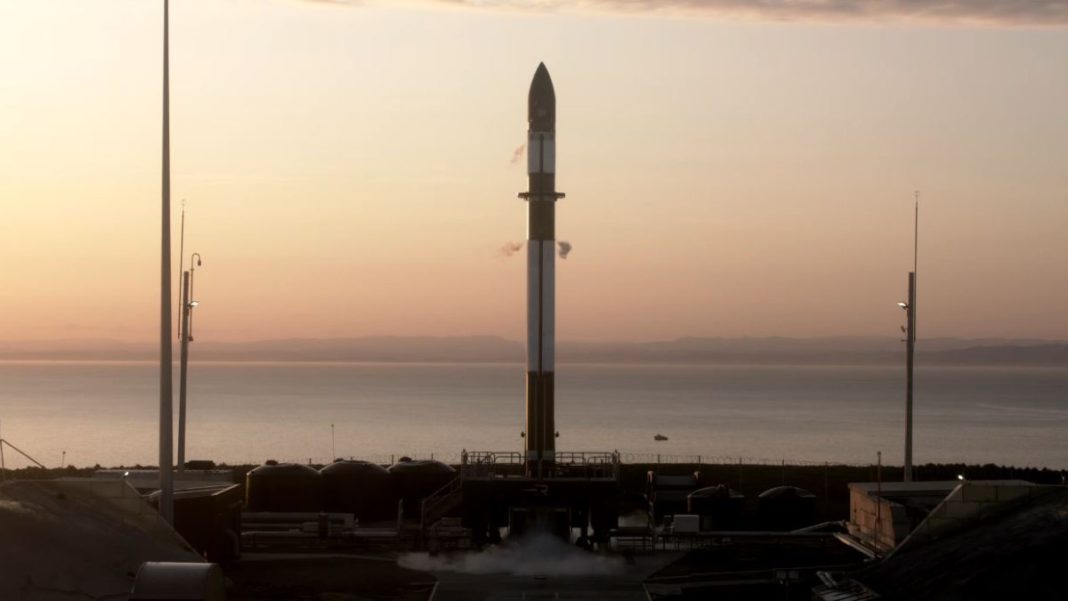NEW ZEALAND: Rocket Lab faced a setback during the launch of a radar Earth-observation satellite early Tuesday morning (Sept. 19). The Electron rocket, tasked with carrying a synthetic aperture radar (SAR) spacecraft for California-based Capella Space, took off from Rocket Lab’s New Zealand site at 2:55 a.m. EDT (0655 GMT; 6:55 p.m. local New Zealand time).
While the initial stages of the launch proceeded as planned, a critical incident occurred shortly after the separation of the Electron’s two stages, resulting in the premature end of the flight.
Rocket Lab’s telemetry data, shared during the live broadcast of the launch, indicated a decline in the velocity of the rocket’s upper stage shortly after the activation of its single Rutherford engine.
The cause of this decline remains speculative, with possibilities including an ignition failure or a premature shutdown. Rocket Lab, however, refrained from identifying a specific proximate or ultimate cause, promising to release further information as it becomes available.
This mission, dubbed “We Will Never Desert You,” marked Rocket Lab’s ninth launch of the year and its 41st overall. The unfortunate anomaly put an end to an impressive streak of 19 consecutive successful launches, with the company’s last failure occurring in May 2021.
The primary objective of “We Will Never Desert You” was to place one of Capella Space’s advanced “Acadia” satellites into a circular orbit approximately 395 miles above Earth’s surface. This mission represented the second in a four-launch contract aimed at deploying these cutting-edge SAR satellites into the heavens.
The preceding mission under this contract, “We Love the Nightlife” on Aug. 23, saw an Electron employing a previously used first-stage engine—a significant milestone for Rocket Lab’s pursuit of booster reusability. Notably, the company also achieved the recovery of the Electron’s first stage in that mission, employing a parachute-aided ocean splashdown.
Contrarily, “We Will Never Desert You” did not incorporate a preflown engine, and no plans for rocket recovery were mentioned by Rocket Lab prior to or during the webcast. This unexpected turn of events serves as a poignant reminder of the unpredictable nature of space exploration and the resilience required to forge ahead.
Also Read: NASA’s Lunar Cameras Uncover Hidden Secrets of the Moon’s South Pole



